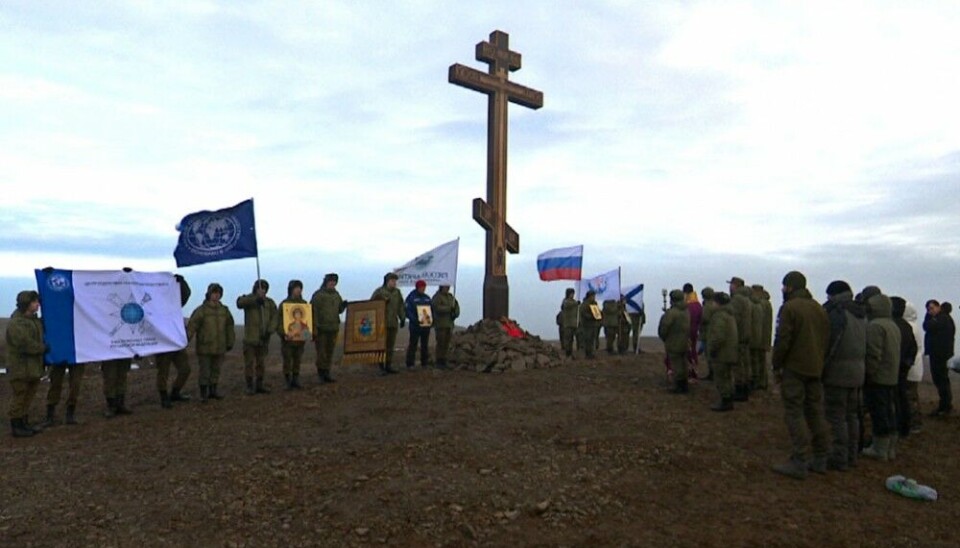
One month after huge Orthodox cross popped up in Svalbard, Russian bishop erects a similar holy landmark in Franz Josef Land
The Orthodox crosses raised in the neighbouring Norwegian and Russian Arctic archipelagos are both devoted to Georgy the Victorious, the saint seen in Russia as the protector of warriors.
Holy water showered over the site as Bishop Iakov swinged his brush. The clergyman that is the Russian Orthodox Church’s top envoy in Arctic affairs made sure that the cross erected at Cape Dvoinoy in Franz Josef Land got a proper blessing.
Also soldiers from the nearby military base, as well as members of a delegation from the Russian Geographical Society, got the holy water sprayed over their heads. More than 30 people attended the ceremony. Several of them carried the flags of the Russian Navy, the Geographical Society, as well as church icons of Saint Georgy.
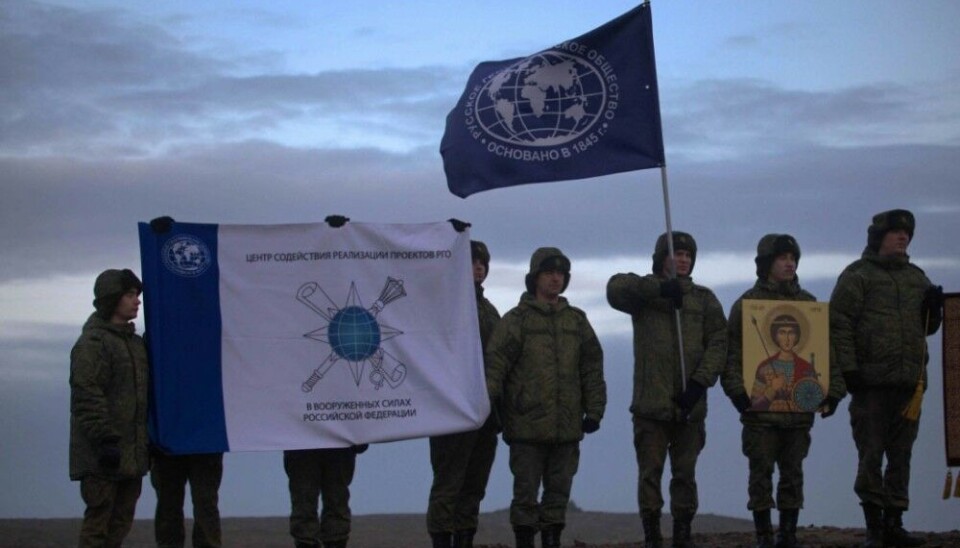
The wooden cross that reportedly has a weight of 1,5 tons is erected on a peninsula on the southern coast of Aleksandra Land, one of many islands in the archipelago. The naval base of Nagurskoye is located about 60 km away.
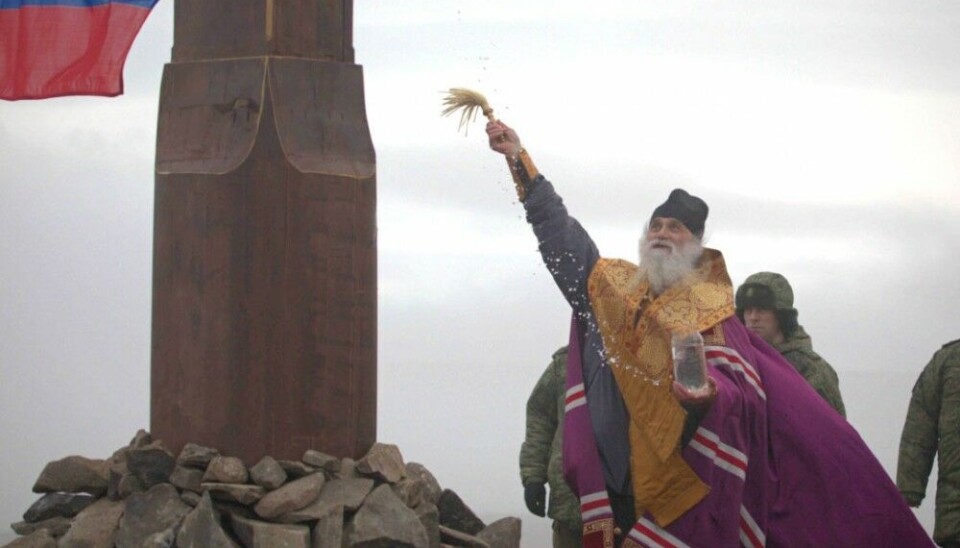
According to Russian Navy representatives, the cross marks the 150 year anniversary since the discovery of the archipelago. The Franz Josef Land and surrounding Arctic territories is of major importance for Russia, Rear Admiral Sergei Artamonov explains.
“The development of these lands will continue with the aim of providing Russian presence, building infrastructure and strengthening the power that helps protect the Arctic territories of our Motherland,” he says in a comment.
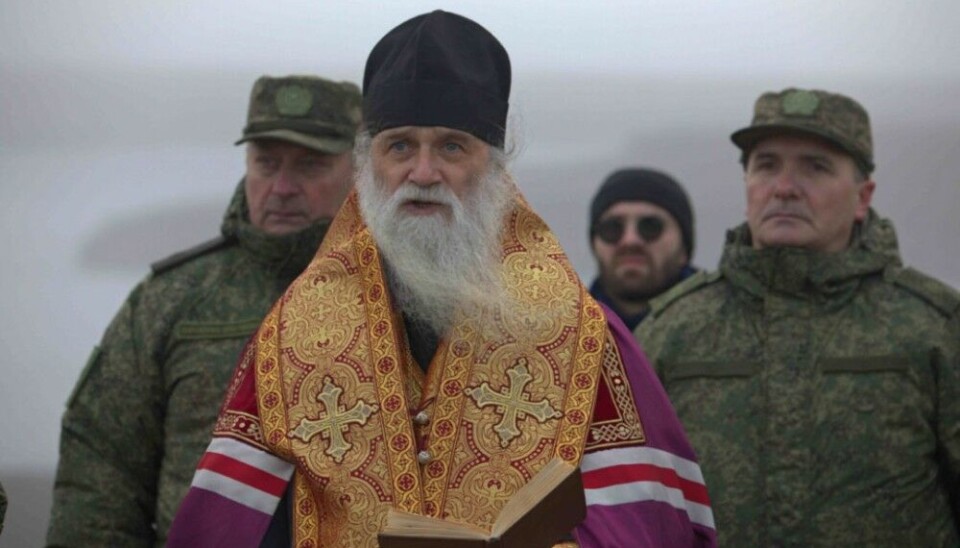
The event in Aleksandra Land comes about a month after Bishop Iakov headed a similar ceremony in Svalbard, the Norwegian archipelago.
Together with representatives of Trust Arktikugol, the Russian state-own company, Iakov came to the settlement of Pyramiden where he erected the 7-meter high Orthodox installation. In a video shared by Trust Arktikugol and its leader Ildar Neverov, men are seen digging a hole in the rocky ground in the hill above the settlement and putting up the several hundred kilo heavy landmark.
A Saint George’s ribbon, the orange-black symbol of Russian nationalism, was attached to the cross.
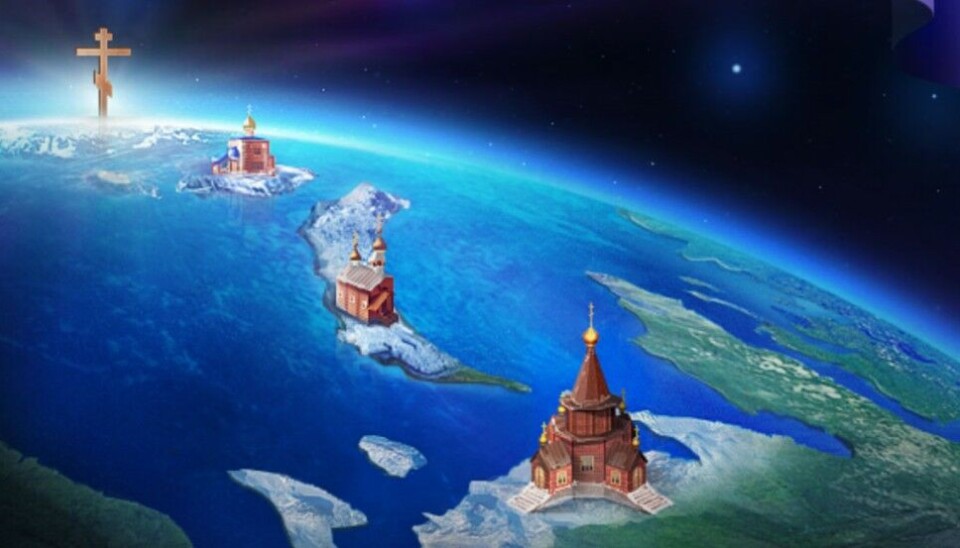
Pyramiden was once inhabited by Soviet coal miners and considered the world’s northernmost town. It was abandoned 25 years ago and is today nothing but a ghost display of its former splendour.
Amid its decline, Moscow appears determined to revive Pyramiden, and the newly appointed Russian general consul in the archipelago along with Trust Arktikugoland its leader Neverov have taken a number of assertive steps in relations with local Norwegian authorities.
The Governor of Svalbard knew nothing about the new Orthodox cross ahead of its erection. In an interview with the Barents Observer, Governor Lars Fause says the illegitimate action will have a consequence.
“The Environmental Protection Department will follow up,” Fause said in a comment.
The Svalbard Governor later confirmed that the cross will have to be removed.
The Russian efforts to erects Orthodox crosses across the Arctic is part of a project supported by Patriarch Kirill.
Since 2012, the Russian Orthodox has in cooperation with the Russian Armed Forces and the Geographical Society built churches, erected crosses and sanctified sites across major parts of the Arctic.
Bishop Iakov has himself participated in a number of expeditions, including to the North Pole and along the Northern Sea Route.
Also the visit to Aleksandra Land this month is part of an Arctic expedition organised in cooperation between the Geographical Society, the Armed Forces and the Russkaya Arktika Natural Park.















